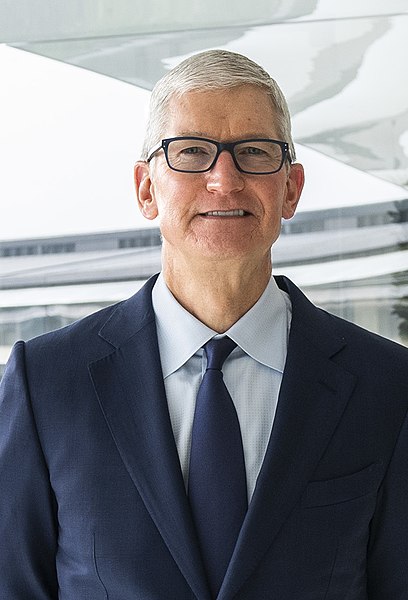The Ted Lasso Effect: Leadership Lessons for Success

Unveiling the Unconventional Leadership Lessons of Ted Lasso
Leadership is an ever-evolving art, shaped by countless individuals who have left indelible marks on the way we perceive and practice this essential skill. Throughout history, leaders have emerged from diverse backgrounds, each offering unique perspectives and approaches. One such leader, albeit a fictional one, has captured the hearts and minds of audiences around the world with his unconventional yet inspiring leadership style. Enter Ted Lasso, the affable and optimistic coach who became an unexpected phenomenon through the eponymous television series.
At first glance, Ted Lasso might seem like an unlikely candidate for a leadership role. A small-time American football coach thrust into the high-stakes world of English soccer, his lack of experience in the sport is evident. However, what sets Ted Lasso apart and makes him a captivating character is his unwavering belief in the power of positivity, empathy, and genuine human connections. Throughout the series, we witness Ted Lasso navigating challenges, building relationships, and leading with an infectious enthusiasm that resonates deeply with viewers.
While Ted Lasso’s leadership prowess may be fictional, it serves as a powerful source of inspiration and a reminder of the qualities that can elevate leaders from good to great. In this comprehensive article, we will delve into the leadership lessons and stories that emerge from Ted Lasso’s character, drawing insights from his triumphs, failures, and the way he impacts the individuals around him.
One of the most prominent lessons we can learn from Ted Lasso is the transformative power of positivity. Despite facing overwhelming odds, Ted remains remarkably optimistic, maintaining a “believe and achieve” mindset that inspires those around him. We will explore how positivity can shape leadership effectiveness, examining specific instances where Ted’s unwavering positivity not only uplifts his team but also influences their performance on and off the field.
Furthermore, Ted Lasso’s ability to forge genuine relationships is a testament to the importance of human connection in leadership. By treating his team members as individuals with unique stories, aspirations, and vulnerabilities, Ted fosters an environment of trust, respect, and collaboration. We will dissect the impact of genuine relationships on leadership effectiveness and explore how Ted Lasso’s approach to building connections drives team dynamics and ultimately contributes to their success.
In addition to positivity and relationship-building, Ted Lasso exhibits a high degree of emotional intelligence and empathy. These qualities enable him to understand and connect with his team on a deeper level, empathizing with their struggles and celebrating their victories. We will unravel the significance of emotional intelligence and empathy in effective leadership, drawing on Ted Lasso’s character to highlight the transformative potential of these attributes.
Resilience in the face of adversity is another cornerstone of Ted Lasso’s leadership approach. Despite encountering numerous setbacks and challenges, he demonstrates an unwavering determination to keep moving forward. We will explore the role of resilience in leadership and examine how Ted’s resilience impacts team morale, instilling a sense of unwavering belief in their abilities even in the most trying times.
Leading by example is a principle that resonates strongly in Ted Lasso’s character. He embodies the qualities and values he seeks to instill in others, serving as a role model for his team members. By walking the talk, Ted inspires his team to embrace the same level of commitment, dedication, and integrity. We will delve into the influence of leading by example on team motivation and performance, drawing on Ted Lasso’s character to illustrate the profound impact of this leadership approach.
Perhaps one of the most refreshing aspects of Ted Lasso’s character is his willingness to embrace vulnerability. He acknowledges his own limitations, seeks help when needed, and creates a safe space for his team members to express their own vulnerabilities. We will explore the benefits of embracing vulnerability in leadership, analyzing specific instances where Ted Lasso’s vulnerability fostered trust, authenticity, and growth within the team.
Ted Lasso’s vulnerability becomes a catalyst for building deeper connections within the team. When he shares his own challenges and insecurities, it creates an atmosphere of psychological safety, where team members feel comfortable being their authentic selves. This environment encourages open communication, collaboration, and the sharing of diverse perspectives.
By embracing vulnerability, Ted Lasso demonstrates that leaders don’t have to be invincible or have all the answers. Instead, they can create an environment that encourages open dialogue and learning from one another. When team members witness their leader’s vulnerability, it inspires them to be more open and honest about their own struggles, fostering a culture of mutual support and understanding.
Furthermore, Ted Lasso’s vulnerability paves the way for personal and professional growth. By acknowledging weaknesses and seeking help, he sets an example of continuous improvement and a growth mindset. This encourages his team members to step out of their comfort zones, take risks, and embrace opportunities for learning and development. The result is a team that is not afraid to challenge the status quo, innovate, and adapt to changing circumstances.
Ted Lasso’s vulnerability is not a sign of weakness but a demonstration of strength and authenticity. It allows him to connect with his team on a deeper level, earning their trust and respect. By creating a safe space for vulnerability, he fosters an inclusive and supportive team culture, where individuals feel valued, heard, and empowered to contribute their best.
Incorporating vulnerability into leadership practices can have profound effects. It nurtures a culture of trust, encourages innovation, and creates a sense of belonging among team members. By embracing vulnerability in leadership, we can inspire others to be their authentic selves, foster collaboration and growth, and ultimately achieve greater success.
The Power of Positivity
Ted Lasso’s unwavering optimism and positive attitude serve as a guiding light throughout the series, demonstrating the transformative power of positivity in leadership. In a world often characterized by cynicism and skepticism, Ted’s belief in the potential for growth and success resonates deeply with his team and viewers alike.
Positivity has a profound impact on leadership effectiveness. Research has shown that leaders who maintain a positive outlook are more likely to inspire and motivate their teams, foster a supportive work environment, and enhance overall team performance (Seligman & Csikszentmihalyi, 2000). When leaders exude positivity, it creates a ripple effect, influencing team members to adopt a similar mindset and approach.
Ted Lasso’s positive attitude permeates every aspect of his leadership. Whether facing formidable opponents, dealing with internal conflicts, or navigating personal challenges, he remains steadfast in his belief that the journey is just as important as the destination. His unwavering positivity becomes a source of inspiration, fueling his team’s determination and resilience in the face of adversity.
One example of Ted Lasso’s infectious positivity is his ability to reframe setbacks as opportunities for growth. Instead of dwelling on defeat, he encourages his team to learn from their mistakes, embracing a growth mindset. This approach not only instills a sense of hope but also cultivates a culture of continuous improvement within the team. By reframing failure as a stepping stone to success, Ted empowers his team members to persevere and strive for excellence.
Furthermore, Ted Lasso’s positive attitude helps to create a supportive and inclusive work environment. He genuinely believes in the potential of each individual, fostering a sense of psychological safety where team members feel valued and encouraged to contribute their unique perspectives and talents. Ted’s positivity erodes barriers and fosters a spirit of collaboration, where ideas are freely shared and creativity thrives.
It is important to note that Ted Lasso’s positivity is not naive or detached from reality. Rather, it is rooted in genuine optimism and a belief in the power of human potential. He acknowledges challenges and setbacks but chooses to focus on the possibilities and strengths of his team. This optimism inspires resilience, creativity, and a willingness to take risks among his team members.
By examining Ted Lasso’s character, leaders can glean valuable insights into the power of positivity in their own leadership journeys. Embracing positivity involves cultivating a mindset that focuses on solutions rather than dwelling on problems, seeking opportunities in the face of adversity, and fostering a supportive and inclusive work environment where individuals can thrive. By embodying the power of positivity, leaders can uplift their teams, instill confidence, and foster a culture of growth and achievement.
Building Genuine Relationships
Ted Lasso’s ability to build genuine relationships with his team members is a central aspect of his leadership approach. He understands that leadership is not just about managing tasks and achieving results but also about connecting with individuals on a personal level. By forging authentic relationships, Ted creates a strong foundation of trust, respect, and collaboration within his team.
The importance of genuine relationships in leadership cannot be overstated. Research has consistently shown that leaders who establish meaningful connections with their team members experience higher levels of employee engagement, satisfaction, and loyalty (Dirks & Ferrin, 2002). When individuals feel valued, understood, and supported, they are more likely to go above and beyond, contributing their best efforts to the team’s goals.
Ted Lasso’s approach to building relationships is characterized by empathy, active listening, and a genuine interest in his team members’ well-being. He takes the time to understand their personal stories, aspirations, and challenges, creating a safe space for open communication. By demonstrating a sincere concern for their individual journeys, Ted fosters a sense of belonging and psychological safety within the team.
One of the ways Ted Lasso builds genuine relationships is by acknowledging and celebrating the uniqueness of each team member. He recognizes their diverse talents and perspectives, ensuring that everyone feels seen and appreciated. By embracing and leveraging this diversity, Ted creates an environment where individuals feel valued for their contributions, leading to enhanced creativity, innovation, and problem-solving within the team.
Ted also practices active listening, an essential skill in building relationships. He genuinely pays attention to what his team members say, seeking to understand their perspectives and emotions. This fosters a sense of validation and respect, making individuals feel heard and valued. Active listening also enables Ted to identify and address any concerns or challenges that may be affecting his team members’ performance or well-being.
In addition to building individual relationships, Ted Lasso emphasizes the importance of fostering a strong sense of camaraderie and teamwork within the team. He encourages collaboration, creating opportunities for team members to work together, support one another, and celebrate collective achievements. Ted understands that a cohesive team is more than the sum of its parts and that genuine relationships among team members form the bedrock of success.
Moreover, Ted Lasso’s genuine relationships extend beyond professional boundaries. He recognizes that individuals are multifaceted, with personal lives that inevitably influence their professional experiences. Ted takes a genuine interest in the well-being of his team members, offering support and understanding during challenging times. By demonstrating empathy and compassion, Ted creates a culture of care and support, where individuals can thrive both personally and professionally.
Leaders can learn valuable lessons from Ted Lasso’s approach to building genuine relationships. It requires investing time and effort in getting to know team members on an individual level, practicing active listening, and fostering a culture of respect, empathy, and collaboration. By cultivating authentic relationships, leaders can create a cohesive and high-performing team, where individuals feel valued, empowered, and motivated to achieve shared goals.
Emotional Intelligence and Empathy
Ted Lasso’s leadership style is characterized by a high degree of emotional intelligence and empathy. He possesses a remarkable ability to understand and connect with his team members on an emotional level, leading to enhanced trust, collaboration, and overall team performance. Ted’s emotional intelligence and empathy serve as critical pillars of his leadership success.
Emotional intelligence, often referred to as EQ, encompasses the capacity to recognize, understand, and manage one’s own emotions as well as the emotions of others (Goleman, 1995). Leaders with high emotional intelligence are attuned to the feelings and needs of those around them, enabling them to navigate complex interpersonal dynamics with finesse and insight.
Ted Lasso consistently demonstrates emotional intelligence in his interactions with his team. He possesses a keen self-awareness, recognizing and managing his own emotions effectively, even in challenging situations. This self-awareness allows him to remain calm, composed, and level-headed, serving as a stabilizing force for his team during times of stress.
In addition to self-awareness, Ted Lasso exhibits a strong sense of empathy, the ability to understand and share the feelings of others (Davis, 1996). He shows genuine concern for his team members’ well-being, taking the time to listen and validate their experiences. By placing himself in their shoes, Ted creates a sense of psychological safety and support, allowing individuals to express themselves openly and honestly.
Ted’s empathy is not limited to understanding his team members’ emotions. He also displays empathy towards their personal circumstances and challenges outside of the workplace. This empathy helps him tailor his leadership approach to accommodate their individual needs, fostering a sense of understanding and flexibility within the team.
The impact of emotional intelligence and empathy on effective leadership cannot be overstated. Research has shown that leaders high in emotional intelligence and empathy are more likely to create positive work environments, build trust, and enhance employee engagement and satisfaction (Mayer, Salovey, & Caruso, 2004). They are better equipped to understand and manage interpersonal conflicts, provide support, and inspire individuals to reach their full potential.
Ted Lasso’s emotional intelligence and empathy contribute to a culture of trust within his team. Team members feel comfortable approaching him with their concerns, knowing that he will listen without judgment and respond with compassion. This trust enables open and honest communication, leading to enhanced collaboration, innovation, and problem-solving.
Moreover, Ted’s empathy allows him to tailor his leadership style to the unique needs of each team member. He recognizes that individuals have different strengths, weaknesses, and motivations, and adapts his approach accordingly. By understanding and appreciating their individuality, Ted creates an environment where individuals feel valued and understood, resulting in increased job satisfaction and a higher level of commitment to the team’s goals.
Leaders can learn valuable lessons from Ted Lasso’s emotional intelligence and empathy. It involves developing self-awareness, actively listening, and genuinely caring about the well-being and experiences of team members. By cultivating emotional intelligence and empathy, leaders can foster a supportive and inclusive work environment, where individuals feel valued, understood, and motivated to contribute their best.
Resilience in the Face of Adversity
Ted Lasso’s character embodies resilience, the ability to bounce back and adapt in the face of adversity. Throughout the series, Ted faces numerous challenges, both on and off the soccer field. However, his unwavering determination, optimism, and ability to persevere serve as a source of inspiration for his team and viewers alike.
Resilience plays a vital role in effective leadership. Leaders who demonstrate resilience are better equipped to navigate obstacles, overcome setbacks, and lead their teams through times of uncertainty and change (Luthans, 2002). By modeling resilience, leaders foster a culture of perseverance, tenacity, and resourcefulness within their teams.
Ted Lasso’s resilience is evident in his ability to maintain a positive outlook even in the face of daunting circumstances. Whether dealing with a losing streak, internal conflicts, or personal challenges, he consistently demonstrates a belief in the potential for growth and success. This unwavering optimism fuels his team’s resilience, helping them rise above setbacks and maintain a sense of purpose and motivation.
Furthermore, Ted Lasso’s resilience is reflected in his ability to adapt to changing situations. He embraces challenges as opportunities for learning and growth, rather than allowing them to deter or discourage him. Ted understands that change is inevitable and that the ability to adapt is crucial for personal and team success. His flexibility and willingness to try new approaches inspire his team members to embrace change with a positive mindset, fostering an environment of innovation and continuous improvement.
In addition to his personal resilience, Ted Lasso exhibits resilience as a collective team attribute. He instills in his team members a sense of resilience and fortitude, reminding them that setbacks and failures are temporary and can be stepping stones to success. Ted encourages his team to learn from their mistakes, regroup, and come back stronger. By fostering a resilient team culture, Ted empowers his players to persevere in the face of adversity and maintain their focus on long-term goals.
One notable example of Ted Lasso’s resilience is his response to external pressures and criticism. Despite facing skepticism and doubts from others, Ted remains steadfast in his beliefs and principles. He does not allow external judgment to shake his confidence or derail his mission. Instead, he channels those challenges into motivation, using them as fuel to prove his worth and demonstrate the effectiveness of his leadership approach. Ted’s resilience in the face of criticism serves as a powerful example for leaders who encounter skepticism or resistance in their own leadership journeys.
Resilience is not about avoiding challenges or denying difficult emotions; rather, it is about developing the capacity to bounce back, adapt, and grow stronger through adversity. Leaders can learn from Ted Lasso’s resilience by cultivating a growth mindset, maintaining optimism in the face of challenges, fostering a supportive team culture, and embracing change as an opportunity for growth and innovation.
Leading by Example
Ted Lasso’s leadership approach is characterized by leading by example. He embodies the qualities and values he seeks to instill in his team members, serving as a role model for their behavior and actions. Ted’s commitment, integrity, and work ethic inspire his team to emulate his leadership style, resulting in enhanced motivation, dedication, and overall performance.
Leading by example is a fundamental principle of effective leadership. Research has consistently shown that leaders who lead by example are more likely to cultivate a positive work culture, enhance employee engagement, and foster trust and respect among team members (Avolio, 2005). When leaders demonstrate the behaviors and values they expect from their team, it creates a powerful influence and sets the tone for the entire organization.
Ted Lasso exemplifies leading by example in various aspects of his leadership. He consistently displays a strong work ethic, putting in the time and effort required to achieve success. Whether it is early mornings at the training ground or late nights reviewing game strategies, Ted’s commitment to his craft and his team is unwavering. His dedication to his role inspires his team members to match his level of effort and commitment, creating a culture of high performance and accountability.
Moreover, Ted’s integrity is a cornerstone of his leadership. He consistently upholds ethical standards, treats others with respect, and prioritizes honesty and fairness. Ted’s team members witness his integrity in action, observing how he handles challenging situations with grace and integrity. This fosters a culture of trust, where individuals feel confident that their leader will always act with their best interests in mind.
Ted Lasso’s approach to leading by example extends beyond his professional conduct. He values and embraces diversity, creating an inclusive environment where individuals are respected and celebrated for their unique backgrounds and perspectives. By embracing diversity, Ted sets an example of inclusivity and promotes an environment where everyone feels valued and empowered to contribute their unique insights and talents.
Furthermore, Ted’s positive attitude and resilience serve as a powerful example for his team. Even in the face of adversity and setbacks, he maintains his optimism and unwavering belief in the team’s potential. This unwavering positivity inspires his team members to approach challenges with a similar mindset, pushing through difficulties and maintaining a focus on long-term goals.
By leading by example, Ted Lasso creates a culture where accountability and continuous improvement thrive. His team members witness firsthand the impact of their leader’s actions and values, motivating them to hold themselves to the same high standards. This culture of accountability fosters personal growth, empowers individuals to take ownership of their actions, and contributes to the overall success of the team.
Leaders can learn valuable lessons from Ted Lasso’s approach to leading by example. It involves aligning one’s behaviors with the values and expectations they have for their team, maintaining a strong work ethic, demonstrating integrity, embracing diversity, and cultivating a positive and resilient mindset. By embodying these qualities, leaders can inspire and motivate their team members to reach new heights of performance and personal growth.
Embracing Vulnerability
One of the most refreshing aspects of Ted Lasso’s leadership approach is his willingness to embrace vulnerability. He acknowledges his own limitations, seeks help when needed, and creates a safe space for his team members to express their vulnerabilities. Ted’s vulnerability fosters trust, authenticity, and growth within the team, making it a key element of his leadership success.
Embracing vulnerability is a crucial aspect of effective leadership. When leaders show vulnerability, they create an environment where individuals feel safe to take risks, share their ideas, and express their concerns. Research has shown that leaders who demonstrate vulnerability are more likely to cultivate psychological safety, enhance team creativity, and foster open and honest communication (Edmondson, 2018). By modeling vulnerability, leaders encourage their team members to be their authentic selves and contribute their best.
Ted Lasso’s vulnerability is evident in his willingness to acknowledge when he doesn’t have all the answers. He recognizes that leadership is not about having all the solutions but rather about fostering an environment where collective intelligence can thrive. Ted openly seeks input and feedback from his team, valuing their expertise and diverse perspectives. This not only strengthens the team’s decision-making process but also empowers individuals to take ownership of their ideas and contributions.
In addition to seeking input, Ted Lasso openly expresses his emotions and shares his personal struggles. He allows his team members to see his vulnerabilities, whether it’s his fear of failure or moments of self-doubt. By being open and honest about his own challenges, Ted creates a culture where individuals feel comfortable expressing their own concerns and seeking support when needed. This vulnerability fosters trust and builds a deeper connection within the team.
Ted Lasso’s vulnerability also extends to accepting responsibility for his mistakes. When he makes errors in judgment or decisions that negatively impact the team, he takes ownership and apologizes sincerely. This level of humility and vulnerability not only demonstrates his integrity but also models accountability for his team members. It sets an example that mistakes are opportunities for learning and growth, creating a culture where individuals feel safe to acknowledge and learn from their own missteps.
Furthermore, Ted Lasso’s vulnerability helps to break down the leader-follower hierarchy. He treats his team members as equals, respecting their input and recognizing their expertise. This approach fosters a collaborative and inclusive work environment, where everyone’s voice is valued and considered. Ted’s vulnerability sends a powerful message that leadership is not about exerting authority but rather about creating an environment that brings out the best in everyone.
Leaders can learn valuable lessons from Ted Lasso’s embrace of vulnerability. It involves creating a safe space for open communication, seeking input and feedback, expressing emotions authentically, acknowledging mistakes, and treating team members as equals. By embracing vulnerability, leaders create a culture of trust, authenticity, and growth, where individuals feel empowered to bring their whole selves to work and contribute their best.
Adapting and Learning from Failure
Ted Lasso’s character demonstrates a remarkable ability to adapt and learn from failure, making it a cornerstone of his leadership approach. Rather than letting setbacks define him or his team, Ted views failures as valuable opportunities for growth and improvement. His resilience and willingness to learn from mistakes not only contribute to his own development but also inspire his team members to embrace a similar mindset.
Adapting and learning from failure is an essential aspect of effective leadership. Leaders who view failures as learning experiences create a culture of continuous improvement and innovation within their teams (Dweck, 2006). By modeling a growth mindset and demonstrating a commitment to learning, leaders foster resilience, creativity, and a sense of curiosity among their team members.
Ted Lasso’s approach to failure is rooted in his belief that setbacks are stepping stones to success. When faced with defeat or obstacles, he encourages his team to reflect on the lessons learned and use them as catalysts for improvement. Ted understands that failure is not the end but rather an opportunity to reassess strategies, learn from mistakes, and make adjustments.
One aspect of Ted’s leadership approach is his emphasis on psychological safety. He creates an environment where team members feel comfortable admitting their mistakes and sharing lessons learned. This open and honest dialogue around failure allows the team to collectively analyze what went wrong, identify areas for improvement, and develop strategies to prevent similar failures in the future.
Moreover, Ted Lasso’s ability to learn from failure extends beyond his own experiences. He encourages his team members to embrace failures as learning opportunities and provides support and guidance during challenging times. Ted fosters a culture where individuals are not afraid to take risks and are empowered to learn from their mistakes, leading to a team that is more resilient, adaptive, and innovative.
Ted’s approach to failure also involves reframing setbacks as opportunities for growth. Instead of dwelling on the negative aspects of failure, he focuses on the lessons learned and the potential for improvement. This positive reframing helps to maintain a sense of optimism and motivation within the team, preventing failures from becoming demoralizing roadblocks.
Leaders can learn valuable lessons from Ted Lasso’s approach to adapting and learning from failure. It involves cultivating a growth mindset, embracing failures as learning opportunities, fostering psychological safety for open and honest discussions, and reframing setbacks as stepping stones to success. By creating a culture that embraces failure as a natural part of the learning process, leaders empower their teams to innovate, take calculated risks, and continuously improve.
Embrace, Lead, Succeed: Applying Ted Lasso’s Leadership Principles
Throughout the Ted Lasso series, we have witnessed a remarkable display of leadership qualities and principles that can inspire leaders in real-life contexts. From the power of positivity and building genuine relationships to emotional intelligence, resilience, leading by example, embracing vulnerability, and learning from failure, Ted Lasso’s character offers a wealth of leadership lessons worth reflecting upon.
One of the key takeaways from Ted Lasso’s leadership approach is the transformative power of positivity. Ted’s unwavering optimism and belief in his team’s potential create a ripple effect, inspiring individuals to reach higher and achieve more. By cultivating positivity in our own leadership journeys, we can uplift our teams, enhance their motivation, and foster a culture of growth and achievement.
Genuine relationships lie at the heart of effective leadership, as exemplified by Ted Lasso. By taking the time to understand and connect with our team members on a personal level, we can create a sense of trust, respect, and collaboration. Building genuine relationships fosters a supportive work environment, where individuals feel valued, empowered, and motivated to contribute their best.
Emotional intelligence and empathy are invaluable qualities in leadership, and Ted Lasso demonstrates them with authenticity and compassion. By cultivating emotional intelligence, leaders can navigate complex interpersonal dynamics, understand the emotions and needs of their team members, and foster a culture of trust and engagement. Ted’s empathy enables him to connect on a deeper level, creating a safe space for open communication, and empowering individuals to bring their whole selves to work.
Resilience is a characteristic that separates good leaders from great ones. Ted Lasso’s ability to bounce back from setbacks, adapt to changing circumstances, and maintain an unwavering determination serves as an inspiration. Leaders who embrace resilience create a culture of perseverance, tenacity, and resourcefulness, instilling in their teams the belief that they can overcome challenges and achieve success.
Leading by example is a principle that Ted Lasso embodies wholeheartedly. By modeling the behaviors and values they expect from their team, leaders inspire and motivate others to emulate their dedication, integrity, and work ethic. Leading by example fosters accountability, sets the tone for the organizational culture, and encourages individuals to strive for excellence.
Embracing vulnerability is a powerful leadership attribute that Ted Lasso embraces. By acknowledging their own limitations, seeking help when needed, and creating a safe space for open communication, leaders can foster trust, authenticity, and growth within their teams. Embracing vulnerability allows individuals to express their concerns, learn from mistakes, and build stronger relationships based on trust and understanding.
Learning from failure is an essential aspect of leadership growth, and Ted Lasso’s approach exemplifies its significance. By viewing failures as learning opportunities, leaders can cultivate a growth mindset, encourage innovation, and foster a culture of continuous improvement. Learning from failure involves reflecting, adapting strategies, and encouraging open dialogue, creating an environment where individuals feel safe to take risks and contribute their best.
In conclusion, the character of Ted Lasso offers a wealth of leadership lessons and stories that can inspire leaders in various fields. The power of positivity, genuine relationships, emotional intelligence, resilience, leading by example, embracing vulnerability, and learning from failure are all fundamental principles that can elevate leadership effectiveness. By incorporating these lessons into our own leadership journeys, we can create positive and impactful environments, nurture the growth and success of our teams, and ultimately achieve extraordinary results.
As leaders, let us draw inspiration from Ted Lasso’s character and strive to embody these leadership principles in our own unique ways. By doing so, we can make a lasting and positive impact on the lives of our team members and the organizations we lead.
References:
Avolio, B. J. (2005). Leadership development in balance: Made/born. Psychology Press.
Davis, M. H. (1996). Empathy: A social psychological approach. Westview Press.
Dirks, K. T., & Ferrin, D. L. (2002). Trust in leadership: Meta-analytic findings and implications for research and practice. Journal of Applied Psychology, 87(4), 611-628.
Dweck, C. S. (2006). Mindset: The new psychology of success. Ballantine Books.
Edmondson, A. C. (2018). The fearless organization: Creating psychological safety in the workplace for learning, innovation, and growth. John Wiley & Sons.
Goleman, D. (1995). Emotional intelligence. Bantam Books.
Luthans, F. (2002). The need for and meaning of positive organizational behavior. Journal of Organizational Behavior, 23(6), 695-706.
Mayer, J. D., Salovey, P., & Caruso, D. R. (2004). Emotional intelligence: Theory, findings, and implications. Psychological Inquiry, 15(3), 197-215.
Seligman, M. E. P., & Csikszentmihalyi, M. (2000). Positive psychology: An introduction. American Psychologist, 55(1), 5-14.






